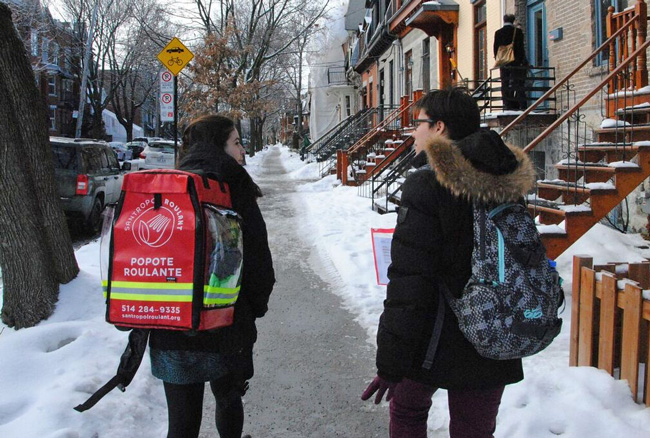
By Jean Murray
For many McGill students, the March study break is a time for relaxing, traveling or catching up on schoolwork. But for a group of McGill students, it’s about something much bigger: engaging with the Montreal community.
Participants in the Alternative Spring Break (ASB) program spent their break volunteering in a local community organization. This year, sixteen different organizations participated, offering volunteer opportunities such as assisting with March break camps, delivering meals to isolated seniors, renovating community centres and sorting food bank donations. Completely free, the program is designed to make volunteering accessible and assist students with getting engaged, or as one participant phrased it, “putting the will to help into action.”
However, at its core the ASB program is not just a volunteering program. Rather, it is an experiential learning opportunity, structured and organized to deliver a simple curriculum of equity education to the student participants. The vision behind the program – run by the Social Equity and Diversity Education (SEDE) office in collaboration with Campus Life and Engagement – is to introduce students to diverse communities, and to help them learn from their experience.
Students are prepared for this through a pre-service orientation, which challenges them to consider social factors that affect the need for such a variety of community organizations, as well as to reflect on their position within society. After they have spent the week volunteering, and reflecting on their experience with a workbook designed by CaPS, the ASB experience ends with a reflection workshop. Here, participants share stories from their placements, debunk negative stereotypes they confronted, and even relate their experiences to their classroom learning – all while enjoying a pizza lunch.
Though it’s only a 20-hour commitment for the week, volunteers were able to quickly see the extent of their learning. Many students found it to be a complement to their curricular learning, and an opportunity to put into practice the theories that are often taught but rarely encountered in a classroom setting. Opportunities for such learning are rare for students.
“SEDE offers a number of training programs – such as our Safer Spaces suite of workshops – for faculty and staff, but it is more difficult to reach the student population, especially through workshops,” says Veronica Amberg, Associate Director of the SEDE office. “The hope is that Alternative Spring Break can be an opportunity for students to take the first step in learning about these issues, and act as a catalyst for continued education about equity and diversity on campus. I believe that students can learn a lot even in just one week!”
Now in its third year, the ASB program saw 85 participants this year – an increase of 50 per cent from 2015 thanks to generous funding provided by both the AUS and SUS. The SEDE Office is hoping to continue to grow the program over the next few years, to increase the accessibility of equity education through experiential learning within the McGill student population.

Great initiative! Good job SEDE office!
I second that, Nathalie! And what a valuable experience for the students participating.